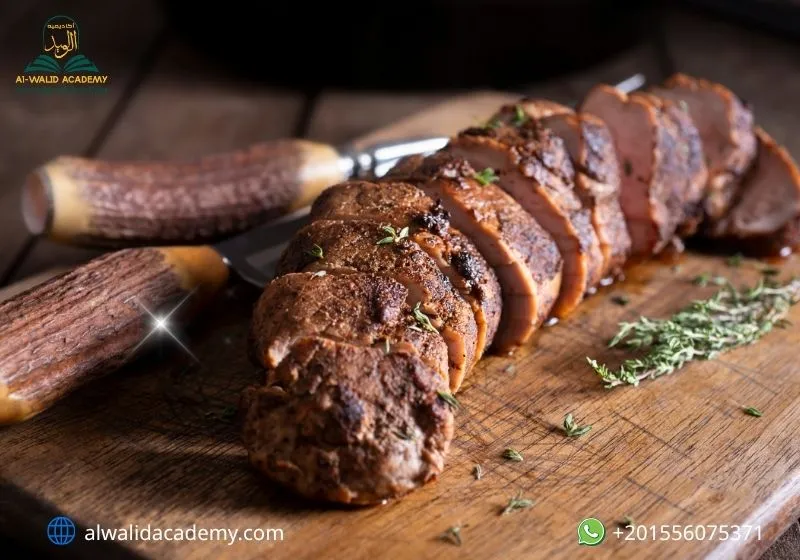The prohibition of pork is a well-known dietary law in Islam, yet the reasons behind it are often misunderstood or oversimplified. For many, the question of why Islam forbids pork extends beyond a simple command, touching on matters of faith, health, and spiritual purity. This article aims to provide a comprehensive and respectful overview, exploring the topic from multiple dimensions. We will delve into the clear directives from the Qur’an and Sunnah, examine potential health insights, and discuss the deeper spiritual and moral wisdom that underpins this practice.
Introduction to Why Islam Forbids Pork
The prohibition of pork is a well-known dietary law in Islam, and understanding its basis is key to grasping the faith’s holistic approach to life.
Understanding the Islamic Perspective
From an Islamic perspective, the prohibition of pork is a matter of divine command and obedience. Muslims believe that Allah, the Creator of all things, has the ultimate wisdom and authority to legislate what is permissible (halal) and what is forbidden (haram). The restriction on pork is not a suggestion but a clear directive found in the Holy Quran. Therefore, the primary reason for a Muslim to abstain from pork is simply an act of faith and submission to the will of Allah, trusting that His commands are for the ultimate good of humanity, even if all the reasons are not fully understood.
You can master the foundations of Islamic law with the Fiqh Islamic Jurisprudence an essential journey through purification, worship, and legal reasoning that empowers you to live with clarity, purpose, and spiritual depth.
Importance of Dietary Laws in Islam
Dietary laws, or the concepts of Halal and Haram, are central to a Muslim’s faith. They serve as a means of building self-discipline, fostering a constant awareness of Allah, and ensuring a state of physical and spiritual purity. Following these laws is seen as a form of worship and a way to thank Allah for the lawful and wholesome provisions He has provided. By adhering to these guidelines, Muslims maintain a clean and pure lifestyle that benefits both their bodies and their souls.
Qur’anic Evidence on the Prohibition of Pork
The primary source for all Islamic dietary laws is the Holy Qur’an. The prohibition of pork is not a matter of debate for Muslims; it is a clear and direct command from Allah, mentioned in several chapters of the Qur’an.
Verses in the Qur’an that Mention Pork
The prohibition is stated clearly in verses such as:
- Surah Al-Baqarah (2:173): “He has only forbidden to you dead animals, blood, the flesh of swine, and that which has been dedicated to other than Allah.”
- Surah Al-Ma’idah (5:3): “Forbidden to you are dead animals, blood, the flesh of swine, and that which has been dedicated to other than Allah.”
- Surah Al-An’am (6:145): “Say, ‘I do not find within that which was revealed to me anything forbidden to a consumer who eats it, except that it be a dead animal or blood poured forth or the flesh of swine for indeed, that is impure or it be [that slaughtered in] disobedience, dedicated to other than Allah.'”
These verses establish the prohibition as a fundamental part of a Muslim’s faith.
Planning to study More about your Islam ? join in our Islamic Studies Course now with us.
The Concept of Halal and Haram
The prohibition of pork is a key example of the Islamic concepts of Halal and Haram. Halal (حلال) means ‘permissible’ or ‘lawful’ and refers to all things allowed for Muslims. Haram (حرام) means ‘forbidden’ or ‘unlawful’ and refers to all things prohibited by Allah. The distinction between Halal and Haram food is not just a matter of rules; it’s a way of life that guides a Muslim towards spiritual purity and obedience.
Read about: How to get forgiveness from Allah
Prophetic Teachings About Pork
The teachings of the Prophet Muhammad (PBUH), known as the Sunnah, provide further clarity and practical guidance on the prohibition of pork. The Hadith, which are collections of the Prophet’s sayings and actions, serve as an important secondary source of Islamic law, complementing the verses of the Qur’an.
Hadith References on Food Restrictions
The Prophet (PBUH) not only confirmed the prohibition of consuming pork but also extended the ban to the trade and sale of it. In a well-known Hadith, the Prophet (PBUH) stated that the sale of pork is forbidden, along with other items deemed unlawful. This emphasizes that the prohibition is comprehensive, covering all aspects of its use and commerce, not just consumption.
The Wisdom Behind Prophetic Guidance
The Prophet’s teachings often provide the practical application of the Qur’an’s principles. By forbidding the trade of pork, the Prophet (PBUH) established a clear standard for the Muslim community, ensuring a pure and lawful way of life. The wisdom behind this guidance is to maintain a society built on purity, obedience, and adherence to divine commands, reinforcing the values of the faith in a tangible way.
Health and Scientific Insights
While the primary reason for the prohibition of pork is a divine command, many have explored the potential health and scientific insights behind this religious law. These insights provide a deeper understanding of the wisdom behind the prohibition, though they are not the reason for a Muslim’s obedience.
Medical Concerns Related to Pork Consumption
Pork is a known carrier of various parasites and bacteria that can be harmful to human health. One of the most well-known concerns is trichinellosis, a disease caused by the Trichinella worm, which can be found in undercooked pork. Other pathogens, such as Salmonella and E. coli, are also commonly found in pigs. The fatty composition of pork is also a factor, as excessive consumption can be linked to a higher risk of certain cardiovascular diseases.
Historical Context of Pork and Health Risks
Historically, the prohibition of pork was highly practical. In hot climates, such as the deserts of the Arabian Peninsula, pork spoils much faster than other meats, making it a significant source of foodborne illnesses. Furthermore, pigs are scavengers, and without modern farming practices, their diet could include waste and other unclean substances. The prohibition, in this historical context, served as a safeguard for public health long before scientific knowledge could fully explain the risks.
Spiritual and Moral Dimensions
The prohibition of pork in Islam extends beyond religious texts or health concerns; it touches on the spiritual and moral dimensions that aim to build a Muslim’s character and strengthen their relationship with Allah.
Purity and Obedience to Allah’s Commands
In Islam, purity (tahara) is a fundamental principle that encompasses both the body and the soul. Pork is considered “unclean” (najis) or impure in the Qur’an, and therefore, avoiding it is an act of obedience that reflects a Muslim’s submission to Allah’s commands. This commitment to divine orders, even if the reasons are not fully understood, is the essence of faith. It teaches a Muslim to trust in the wisdom of the Creator, who knows what is best for His creation.
Building Self-Discipline Through Food Laws
The dietary laws in Islam, such as the prohibition of pork, serve as a powerful means of cultivating self-discipline. When a Muslim abstains from something forbidden, they are practicing self-control and strengthening their willpower. This daily practice of choosing what is Halal and avoiding what is Haram contributes to building a strong and disciplined character, capable of resisting fleeting desires and adhering to higher moral principles.
Learn Quran, Arabic, and Islamic Studies with certified teachers in fun, interactive, and personalized sessions. Join thousands of students around the world and begin your path today!
Comparison with Other Religions
While the prohibition of pork is most famously associated with Islam, it is a dietary law found in other major religions as well. This shared practice highlights a common spiritual and historical thread in the Abrahamic faiths.
Pork Prohibition in Judaism
Judaism has a strict set of dietary laws known as kashrut. The prohibition of pork is a core part of these laws and is explicitly mentioned in the Torah (the first five books of the Hebrew Bible). In Leviticus 11:7-8, it states, “And the pig, because it has cloven hooves and is a ruminant, yet does not chew the cud, is unclean to you. You shall not eat their flesh or touch their carcasses; they are unclean to you.” Like in Islam, the prohibition is a divine command that is followed as an act of obedience.
Dietary Perspectives in Christianity
In Christianity, the dietary laws of the Old Testament were largely re-evaluated and changed by the New Testament. While early Christians, particularly Jewish converts, may have observed these rules, the teachings of Jesus and later the Apostle Paul (in books like Acts 10 and Mark 7) emphasized that “all foods are clean.” Therefore, the consumption of pork is not forbidden for most Christians today. The prohibition, for them, is a matter of historical law that was superseded by a new understanding of faith.
If you want to join Islam Know more about: New Muslim Convert Guide
Common Misconceptions About Pork in Islam

The Islamic prohibition of pork is often misunderstood by people outside the faith, leading to several common misconceptions. Addressing these can provide a clearer and more accurate picture of the Islamic stance.
Is the Ban Only About Health?
One of the most frequent misconceptions is that the prohibition is based solely on health reasons. While there are well-documented health concerns associated with pork consumption, this is not the primary reason for the ban in Islam. The core of the prohibition is a divine command from Allah, as stated in the Qur’an. Muslims abstain from pork as an act of obedience and faith, regardless of any scientific or health-related findings. The health benefits are seen as a byproduct of following Allah’s wisdom, not the reason for the rule itself.
How Muslims Handle Dietary Restrictions in Non-Muslim Countries
Another common question is how Muslims manage to adhere to these dietary laws when living in countries where pork is a common food. Muslims are required to be diligent in checking food labels, asking questions about ingredients in restaurants, and seeking out Halal-certified products. This practice fosters a strong sense of awareness and self-discipline. In cases where no Halal food is available and there is no other choice, Islamic law allows for flexibility to prevent a person from starving, but this is a rare exception to the general rule.
Learn More About Islamic Teachings with Al-Walid Academy
Understanding the wisdom behind Islamic laws, like the prohibition of pork, is a journey of faith and knowledge. If you are seeking to deepen your understanding of the Qur’an, Hadith, and the spiritual dimensions of Islam, Al-Walid Academy offers a structured and authentic path to learning.
Join Al-Walid Academy for Authentic Lessons in Islam and Arabic
Our academy provides a wide range of courses taught by qualified and experienced instructors. We offer:
- Personalized Lessons: One-on-one guidance to suit your specific learning needs.
- Authentic Teachings: Lessons grounded in the Qur’an and Sunnah.
- A Supportive Community: A network of dedicated learners and teachers.
- Flexible Learning: Study at your own pace from the comfort of your home.
Ready to continue your journey of faith? Enroll in a course with Al-Walid Academy today and deepen your understanding of Islam.
Conclusion
The Islamic prohibition of pork is a profound example of the comprehensive wisdom found within the faith. While some may focus on the health or scientific reasons, the core of the matter for a Muslim is an act of pure obedience to a divine command. The prohibition is a test of faith and a means of building self-discipline, fostering a sense of purity and a continuous awareness of Allah. It aligns with the teachings of other Abrahamic religions, highlighting a shared legacy of dietary purity. Ultimately, the ban on pork is a multidimensional law that benefits a Muslim’s body, mind, and soul, and serves as a testament to the holistic guidance provided by Islam.
FAQS
Here are some common questions about the prohibition of pork in Islam to help you understand this important dietary law.
Is the prohibition of pork a recent development in Islam?
No, the prohibition is an ancient dietary law that existed in Judaism as well. It is a fundamental part of Islamic jurisprudence, with clear verses in the Qur’an and authentic prophetic traditions that have been followed for over 1400 years.
What about processed foods that may contain pork byproducts?
Muslims are required to be diligent in checking the ingredients of processed foods, as many products may contain pork derivatives such as gelatin, certain types of fat, or flavorings. It is the responsibility of the consumer to ensure that all ingredients are from a lawful (Halal) source.
What is the difference between ‘halal’ and ‘kosher’ in relation to pork?
Both Islam and Judaism forbid the consumption of pork, so it is considered haram in Islam and trefa (not kosher) in Judaism. While there are many similarities in other dietary laws, the specific rules and methods of slaughter differ between the two religions.
Is it a sin to touch pork?
Touching pork is not forbidden in Islam, and it does not invalidate your Wudu (ablution). The prohibition is specifically about the consumption of pork. However, it is a recommended practice to wash your hands after handling it, as it is considered impure.





